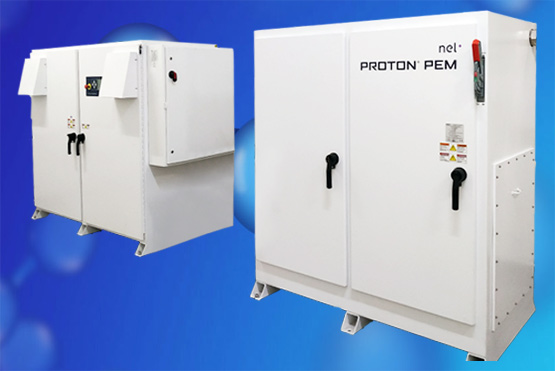 A molecule of hydrogen (H2) is highly reactive and it reacts readily with most other elements and chemical compounds. Each hydrogen molecule contains two hydrogen atoms, which can combine easily with other chemicals, to form new compounds. The hydrogen atom holds a positive charge due to the single proton in its nucleus. Thus, all chemical industries prefer to use hydrogen for manufacturing their products. MVS Engineering Pvt. Ltd offers portable gas generators which produce pure hydrogen for chemical reactions.
A molecule of hydrogen (H2) is highly reactive and it reacts readily with most other elements and chemical compounds. Each hydrogen molecule contains two hydrogen atoms, which can combine easily with other chemicals, to form new compounds. The hydrogen atom holds a positive charge due to the single proton in its nucleus. Thus, all chemical industries prefer to use hydrogen for manufacturing their products. MVS Engineering Pvt. Ltd offers portable gas generators which produce pure hydrogen for chemical reactions.
Various chemical reactions where hydrogen is needed
All chemical manufacturing companies need hydrogen for various chemical reactions. They can safely use this colorless and odorless gas to manufacture different chemical products.
● Hydrogen reacts with the electronegative atoms of nitrogen to form ammonia (NH3). Millions of tons of hydrogen are needed to produce ammonia all over the world. Ammonia is an essential component in manufacturing fertilizers, pesticides, dyes, plastic products, and various cleaning agents. This gas with a suffocating odor is also used in liquid state in refrigerators and water purifiers.
● Hydrogen combines with metals, like sodium, to form hydrides. Hydrogen reduces some metal oxides to respective metals. These reactions are highly useful in many industries where these compounds or individual metals are needed.
● All acids are formed by the reaction of hydrogen with non-metallic elements; for example hydrogen and chlorine combines to form hydrochloric acid. Water (H2O) is formed by the combination of hydrogen and oxygen under high temperatures.
● Methanol is an organic compound, which is also called methyl alcohol or wood alcohol. It was earlier used as a fuel in various transport systems and also as a chemical agent in many pharmaceutical companies.
Also Read
All these applications of hydrogen demand the continuous supply of this gas at production sites. The installation of onsite hydrogen plants by MVS Engineering is proven useful to lots of industry owners. These gas generators fulfill their requirements of hydrogen for chemical reactions in those manufacturing sites. These lightweight hydrogen plants are also useful in chemical laboratories, where hydrogen in a liquid or gaseous state is needed in various experiments.

